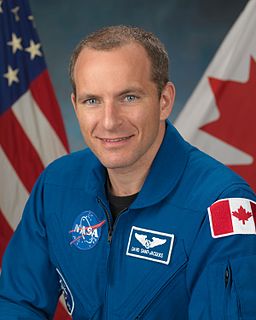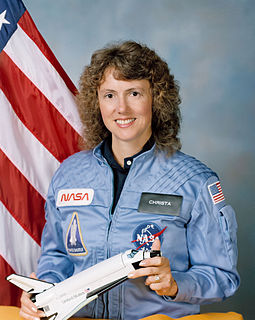A Quote by John Glenn
We had 83 different space research projects on my last space flight in '98, and they covered the whole gamut.
Related Quotes
For the last several years and culminating in six months in orbit next year, I've been training for my third space flight. This one is almost in a category completely different than the previous two, specifically to live in on the space station for six months, to command a space ship and to fly a new rocket ship.
The space station mission was kind of the culmination of all of my experience of being a NASA Astronaut, so it had brought all of my previous experience into play. I had to learn the Russian language to a fluent level so that I could function as the co-pilot of the Soyuz Spacecraft that we flew up and back from the space station. And then the challenge of being the Commander of the whole expedition, a six and a-half month flight aboard the international space station. I felt the burden of the whole mission on my shoulders, which was fine, and fortunately everything did go well.
There's a huge amount of pressure on every astronaut, because when you get right down to it, the experiments that are conducted on a space flight, or the satellites that are carried up, the work that's to be done, is important and expensive work, and you are up there for a week or two on a Space Shuttle flight. The country has invested a lot of money in you and your training, and the Space Shuttle and everything that's in it, and you have to do things correctly. You can't make a mistake during that week or two that you're in space.
Half of one per cent of the U.S. budget is space-related stuff. In Canada, we spend more on dog foodScreen Shot 2015-08-19 at 2.39.35 PM. Space flight is intrinsically international and very modern. It's like a co-op. Every country provides services. In Canada, we have a focus on robotics in the shuttle and space station. In exchange, we get research time for our scientists and astronauts' flights. Our contribution is as a junior partner.
I actually had four space flights altogether, three times on shuttles. My second flight was really unique for me because I was going back into space, first of all. The first one was like an appetizer at a nice dinner. You know, you want to go up and you want more. So, the second time I got into space, it was neat because I got to actually do two space walks.
The Americans are still the leaders in human space flight. I feel we have a danger here of kind of stagnating. We're kind of resting on our laurels and there's a danger going forward if we don't take bold steps to really support human space flight in this country that we could fall behind. After the space shuttle is retired, we're going to have a big gap, five to seven years, at least where we're not going to have the ability to send our own astronauts into space, we'll have to buy rides on the Russian Soyuz, and so that will be a pretty big step down for us.




























